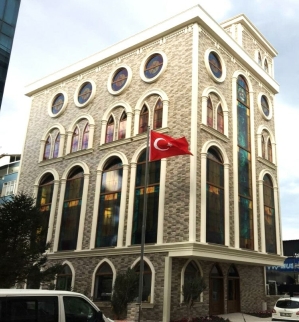
Protestant Christians in Türkiye continued to face opposition for practicing their faith in 2023, according to a rights report.
Both written and oral hate speech incidents, along with some violence, were reported, according to the Human Rights Violation Report 2023 issued on Tuesday (June 4) by the Protestan Kiliseler Derneği (Association of Protestant Churches).
Some of the 205 Protestant churches, all independent or in fellowship clusters, saw opposition to their church buildings. The report also cited the denial of legal rights in training ministry leaders.
“No progress was made in 2023 with regard to the rights of Christians to train their own religious workers,” the association reported. “Many foreign church leaders were deported, were denied entry into Turkey or faced problems with getting their residence permits renewed.”
Christian education and ministry training remains a large challenge because of official opposition. The report said that laws in Turkey “continued to deny the possibility of training Christian clergy and the opening of schools to provide religious education for the members of church communities in any way. Yet the right to train and develop religious leaders is one of the foundation stones of the freedom of religion and belief.”
Protestants try to resolve this problem by initiatives such as posting students abroad or inviting foreign ministry leaders to train Turkish Christians. A dire need for foreign workers to support the churches, however, remains.
“In 2023, we continued to see cases of foreign religious workers and members of congregations being deported or refused entry to Turkey or denied residence permits and visas,” the report said. “Many congregations were left in difficult situations and the need for religious workers continues to be great.”
Protestants or their institutions experienced hate crimes or associated physical attacks based solely on faith.
“In 2023, problems continued to be faced with regard to requests to establish a place of worship, to continue using a facility for worship, or with applications to use existing church buildings,” noted the report.
It listed several incidents of Christians suffering physical persecution. A thug told police he “wanted to test how tolerant Christians were” after punching a pastor preaching in a worship service in Eskişehir Province on Nov. 6. The public prosecutor ordered his arrest but he ended up at a local psychiatric hospital for assessment, according to the report.
Two persons threatened to set a pastor on fire and faced charges of “threatening behavior and violating workplace immunity,” the association reported. The assailants on Nov. 25 forced entry into a church building in Tepebaşı, Eskişehir and asked, “Are you Jewish? Are you Israeli? If you call the police, we will set you alight.”
Security forces arrived and took the duo to court on a charge of “inciting the public to hatred and hostility, threatening behavior as a group of more than one person, violating workplace immunity by using force or threats.” Both were released on bail.
The landlord of the Kurtuluş Church building in Çekmeköy, İstanbul, received a phone call on Dec. 18 telling him to evict the church meeting there. Two knife-wielding assailants later smashed the church sign and destroyed a logo panel. The offenders confessed to police, but “the church still feels under threat,” the report stated.
In the Üsküdar area of İstanbul, the Eurasia Protestant Churches Foundation reported that someone shouting in violent language threw eggs and coins at its entry door on May 2, 2023.
In the region of Kayeri on June 5, 2023, stones damaged windows of a church facility used to wash clothes for earthquake victims. Another stone throwing incident happened in Amasya Province on Dec. 3, when a culprit threw stones at a church during worship, continuing to pelt the building even after police arrived. Officers arrested him, but the church withdrew its complaint after receiving an apology.
The report also catalogued verbal incidents. On Jan. 28, 2023, a woman in a house of mourning made false accusations against a church leader, his family and congregation members. Officials intervened and reprimanded her.
Following the Feb. 6, 2023 earthquake in Türkiye, during aid efforts on Feb. 28 people wearing religious attire mocked a field kitchen that a church had set up in Hatay Province. The report noted that “local public and officials thanked the church for its service.”
In Adiyaman, a group dressed in Islamic cassocks harassed Christians serving meals to earthquake victims. The group of Christians had been “identified as a target on social media,” and security forces issued a warning to those who harassed them.
In Sinop, the area director of an extremist nationalist organization made threats against a pastor and his church during a speech at a public function on Sept. 18. Social media users shared the speech, and “although the church was very apprehensive,” police received no complaints.
Yet another pastor became a target in Mardin Province on Oct. 28. A local newspaper switched his photo for that of a known swindler in a news article about fraud that had no connection to the pastor. Police did receive a complaint but took no action.
Compared with traditional and historic churches in Türkiye, new churches lack official support in using buildings, the report noted. They attempt to join as religious associations and rent buildings such as shops or depots for worship.
“However, many of these premises do not have official status as a place of worship, and therefore they are not officially recognized as a place of worship, even though they are used that way,” stated the report. “They cannot benefit from the advantages or the assistance given to an officially recognized place of worship such as free electricity and water as well as tax exemption.”
When these new churches introduce themselves to the authorities, they receive warnings that they are not legal and may be closed down, the association reported. Most of the 205 churches in Turkey are located in Istanbul, Ankara and Izmir.





